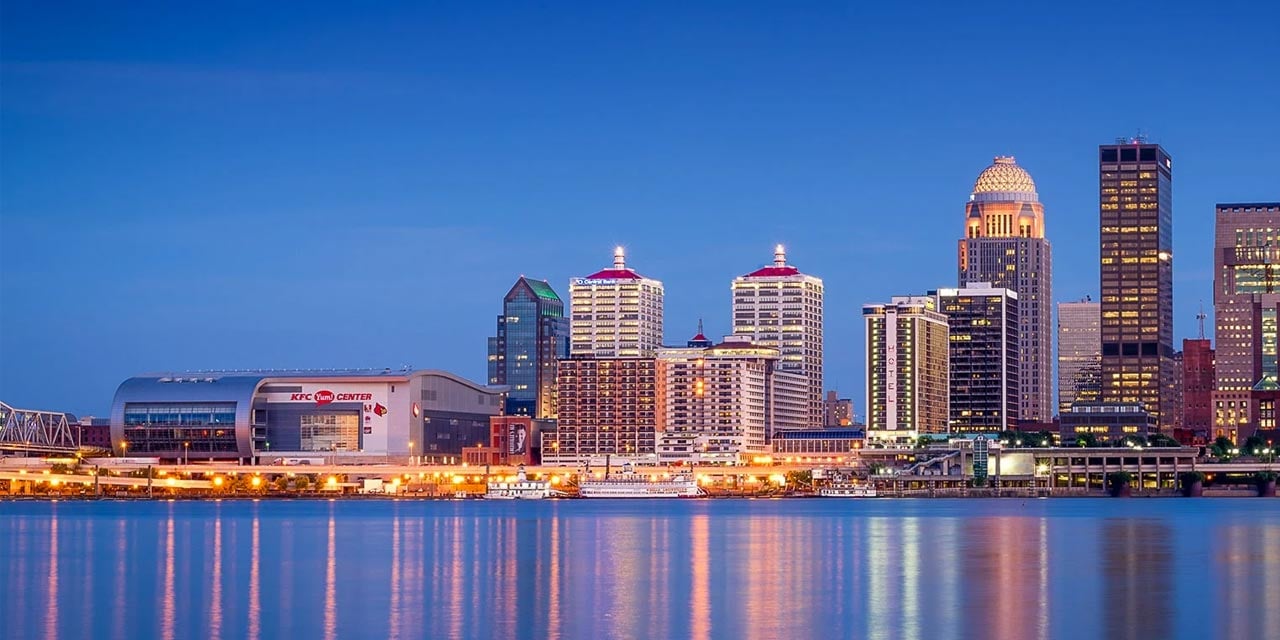
The Game is Changing: How College Sports Impact the Louisville Economy
The business of sports is undergoing a period of immense growth and transformation. Interest is at an all-time high, as evidenced by record live rights deals and skyrocketing team valuations. While plenty of ink has been spilled over the economics of professional sports, less attention has been paid to college athletics. That is changing. With the Name, Image, and Likeness (NIL) revolution, major conference realignment, and the advent of legal sports gambling, college athletics is increasingly big business. In this article, we’ll take a look at the economic impact of college sports on the Louisville economy.
The most direct path by which college athletics can impact an economy is activity generated around big events, like a football game day or Final Four. As an example, Houston hosted the 2023 Men's Final Four and estimated a $270 million economic impact (the same year in which Louisville hosted a Men’s regional final). But hosting these events is only possible if a city has the necessary infrastructure, including a stadium and/or arena. In Louisville, a recent study conducted by Hunden Partners found that the economic impact of the KFC Yum! Center over its last nine fiscal years was $942 million, supporting an average of 584 full-time jobs annually in the city. This is in large part due to the arena’s multi-purpose functionality, which is especially useful in a post-pandemic world where live events and services spending have driven economic growth. As an example, Beyonce’s Renaissance Tour at the University of Louisville’s L&N Federal Credit Union Stadium spurred a clear uptick in local hotel occupancy and rates charged. In this way, the success of UL sports has helped pave the way for a broader bump to economic activity.
There are also countless indirect ways that a successful sports program can positively impact a local economy. Academic literature largely finds a positive correlation between athletic success and both enrollment size and student quality (not to mention donations). Just up I-65, Butler University is perhaps the best modern example of the phenomenon after seeing a massive uptick in applications and donations following their Cinderella runs to the 2010 and 2011 Final Fours. As Harvard Business School Assistant Professor Doug J. Chung concluded: “the financial impact of having a successful athletics program is persistent over time and can have a substantial long-term monetary effect, (with) the impact expected to grow even further in the future.” It’s certainly not hard to see how the athletic success of UK and UL could have a flywheel effect on our local economies – a better sports program improves the school’s visibility on a national stage, resources, and (in theory) student quality. And given that a majority of graduates end up working in the same region as the university they attended, the link between athletic success and economic success becomes more clear.
Two other recent changes are altering the economics of college sports as we speak – the increasing prevalence of sports gambling and ability of collegiate athletes to pursue NIL compensation. On the former, LendingTree reports that states received roughly $2.5 billion in tax revenue from sports gambling in 2023, up 35% year-over-year. This revenue can be used to benefit a state’s local communities in any number of ways – from fixing a road to investing in megaprojects that bring jobs to the state. Kentucky, which legalized gambling in late 2023, has already seen tax revenues far exceeding initial projections – given that the UL and UK are two of the most popular college teams in America, it would not be surprising if local gambling revenues continue to outperform. Similarly, the NIL economy (in which athletes are now allowed to profit off their name, imagine, and/or likeness) is growing at a rapid clip; estimates of the NIL market now exceed $1 billion and will increase exponentially from here. While little research has yet been completed on the economic impact of the burgeoning NIL market, it’s not hard to imagine the partnership between a community’s athletes and its businesses as a mutually beneficial relationship that could boost local economies.
Athletics are big business, and in Louisville, Kentucky, college sports reign supreme. And while the full impact of our colleges’ athletic success on the local economy is difficult to discern, there is little doubt that it has – and will continue to have – a major positive impact. With the sports economy set to grow meaningfully in the coming years, so too will this relationship.
Baird's Businesses
Baird’s financial advice and services include Private Wealth Management, Asset Management, Global Investment Banking, Capital Markets and Private Equity. Our clients include individuals, families, communities, small businesses and foundations across the United States, and corporations and institutional investors around the world.

Our team emphasizes teamwork, sector expertise and client focus, creating a unique culture that sets our advisory and financing services apart.

Let us help you create your legacy through estate planning, trust and estate settlement services and investment management – so you can transfer your wealth to the people and causes you care about most.

With global resources and an unwavering commitment to your best interests, we're focused on helping you make smart decisions in all areas of your life.

We've helped schools, municipalities and other public organizations secure their financial futures in all kinds of markets for more than 100 years.

Our team emphasizes teamwork, sector expertise and client focus, creating a unique culture that sets our advisory and financing services apart.

Let us help you create your legacy through estate planning, trust and estate settlement services and investment management – so you can transfer your wealth to the people and causes you care about most.

With global resources and an unwavering commitment to your best interests, we're focused on helping you make smart decisions in all areas of your life.

We've helped schools, municipalities and other public organizations secure their financial futures in all kinds of markets for more than 100 years.

Our team emphasizes teamwork, sector expertise and client focus, creating a unique culture that sets our advisory and financing services apart.

Let us help you create your legacy through estate planning, trust and estate settlement services and investment management – so you can transfer your wealth to the people and causes you care about most.
